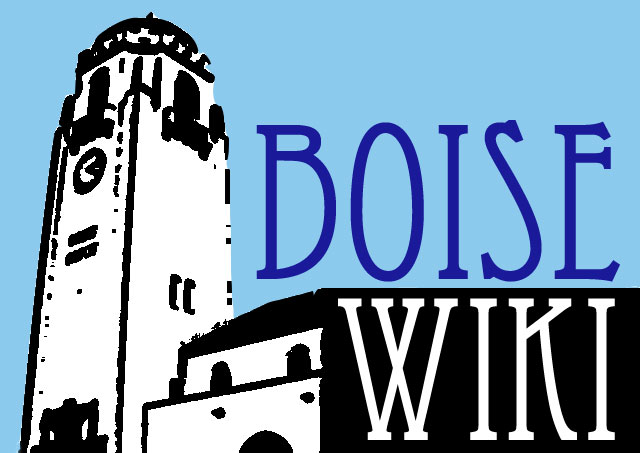As requested, this week’s readings represent history written for the public, from a conservative perspective. As usual, I broadened the definition of “public history” to include how amateur historians and members of the public “do history.”
A note about my method for finding these pieces: I intentionally kept my searches for readings party-neutral; I did not search for “Republicans,” “Tea Party,” or terms like “extremist” or “right-wing.” I simply searched for variations on “conservative history,” and these articles and blog posts were in the top several pages of results—or they were linked to in one of the top results. (Exception: Beck’s black history discussion, which I used in my last History 502 section.) Although the subject may seem over-represented in the list below, I did not look for pieces on black civil rights or African Americans, but many were in the search results, demonstrating, I think, the significance of this topic to the current conservative movement in the United States.
All of the people represented here fall into at least one of these categories:
- self-described conservative,
- writing for a conservative website,
- liberals or moderates writing about conservative history.
The authors are diverse in their opinions, from a fiscal conservative who is socially left of center to deeply socially conservative (self-described) Christians. Their life experiences and occupations also vary; represented in this list are veterans, professors, teachers, fellows in conservative initiatives, and average bloggers.
This is a long list, and I encourage you to read as many items on it as possible. That said, I know your time is not unlimited, and so that we have some common articles to discuss, I have starred required readings. Following the list, you’ll find some questions for discussion. Please add one of your own discussion questions to the comments section of this post.
The History of Conservatism
* Carlson, “Learning from the History of Conservatism”
Republicans, Democrats, and the Constitution/Founders
Scott, “WANTED: Democrat Leaders Who Forthrightly Support the Constitution”
“DO We Have the Right to Disobey Islamic Law?”
Taylor, “Gun Control – Not According to George Washington”
Barton, “American History: Bachmann v. Stephanopoulos”
Taylor, “Thanksgiving and Our American Heritage”
Presidents
*Postel, “Lincoln’s Conservative Vision”
“Teddy Roosevelt Revisited”
Conservatives, Civil Rights, and African Americans
* Pete, “The Historical and Social Barriers to Expanding the Conservative Vote among African Americans”
Minor, “A Focus on Freedom for Black History Month”
* Voegeli, “Civil Rights and the Conservative Movement”
Morel, “The Soul of W.E.B. DuBois”
* Anderson, “Blacks Were More Than Slaves”
Swimp, “What, to Black Americans, is the 4th of July?”
* Beck, “America’s Black Founding Fathers,” Part I and Part III
* Williamson, “The Party of Civil Rights” and its follow-up, “Yes, the Party of Civil Rights”
* Jackson, “King’s Real Legacy”
* Garris, “Martin Luther King’s Conservative Legacy”
Spalding, “Martin Luther King’s Conservative Principles”
Recent History
Erickson, “From Melting Pot to Pressure Cooker”
Longstreet, “Who Murdered America? What Comes Next?”
Public History/Public Memory
* Almasi, “Chavez Monument Proclaimed by Obama Over Project 21 Member’s Warnings”
History Education: Educational Resources, Posts by Teachers, Posts about Education
* “Reflections from High School World History Students”
“The last Samurai is. . . Me?”
* “How State Standards are Indoctrinating Our Youth with Marxist Views on the Great Depression”
* “McCarthyism Lecture Notes from a Liberal Teacher”
“Bill of Rights in the News: Gun Rights in the 21st Century”
* Potter, “Why Teach the History of Modern Conservatism? Because It’s Fun”
* Klugewicz, “Hungry Souls and Brave Hearts: Heroism, History, and Myth”
Miscellaneous
Hitt, “A Conservative History of the United States”
Barton, “Guns, Kids, and Critics”
Would, “‘Conservative’ Historians Refuted”
* Hensatri, “Conservative History”
* Strickland, “Anthony Bradley’s Black Tribalist Attack on Doug Wilson”
Hawkins, “Conservative Bloggers Select the 25 Worst Figures in American History”
DISCUSSION QUESTIONS
(for class–blog about whatever you wish in regards to these posts)
1. As noted in the introduction, there is a good deal of diversity among these authors’ views and life experiences. Despite this diversity, do you see some common themes, beliefs, or language/rhetoric? For example, are there words that appear frequently? Do the authors seem to define them similarly to each other, or are the definitions slippery?
2. What might explain the frequency of posts about civil rights and African Americans?
3. At least as represented in these posts, what do conservatives value in the teaching of U.S. history? What, for these writers, is the purpose of teaching U.S. history in K-16?
4. Are there patterns in how the authors use sources? What do you think about how individual authors use and cite sources?
5. No matter where you are on the political spectrum, chances are you agreed with some of the writers’ points or at least found them compelling. Which ones appealed to you as a historian, and why?
6. As represented by these authors, do conservatives “do history” differently from progressive writers? If so, what are the differences? If not, how might you explain the similarities?
7. Aside from African-American history, there isn’t much history of people of color represented in these posts, nor is there much women’s history. Imagine you were hired to address this history by creating a museum exhibit or series of blog posts for a conservative audience (perhaps for the bloggers whose work we read today). Your goal is to interest them in the history and make them want to learn more. What concepts would you highlight to spark their curiosity and desire to learn? What kind of language would you use? If it’s a museum exhibit, what kinds of artifacts might you include? (Would your approach be different than if you were writing for a progressive audience? Why or why not?)
Remember: please add one of your own discussion questions to the comment section of this post.
